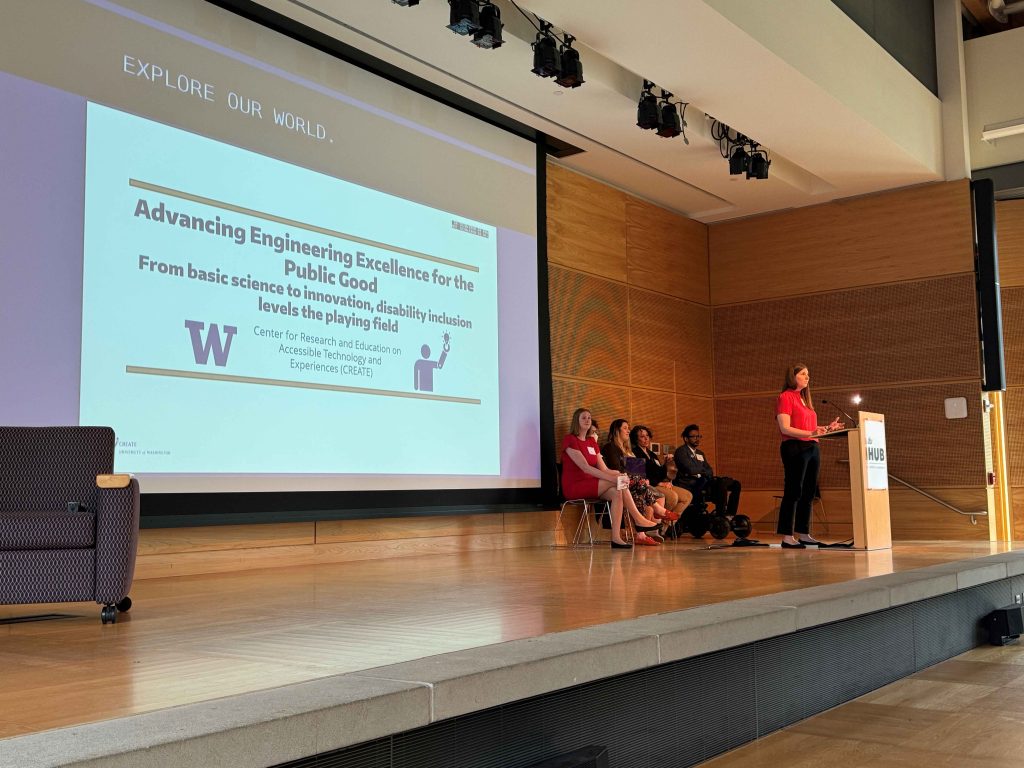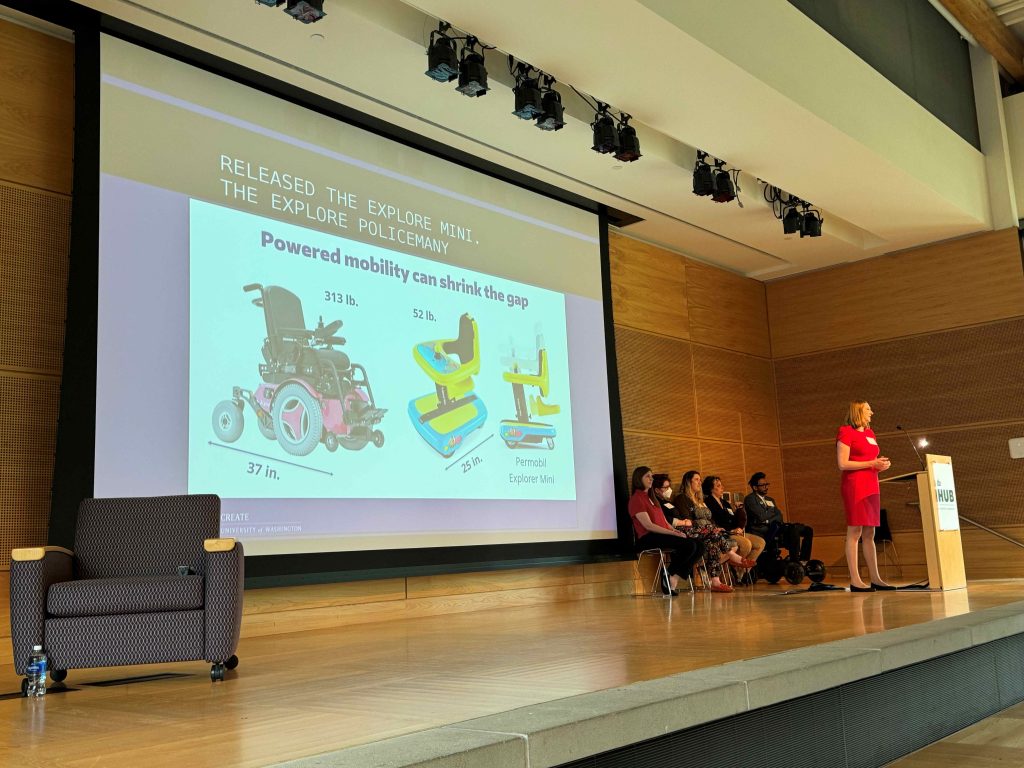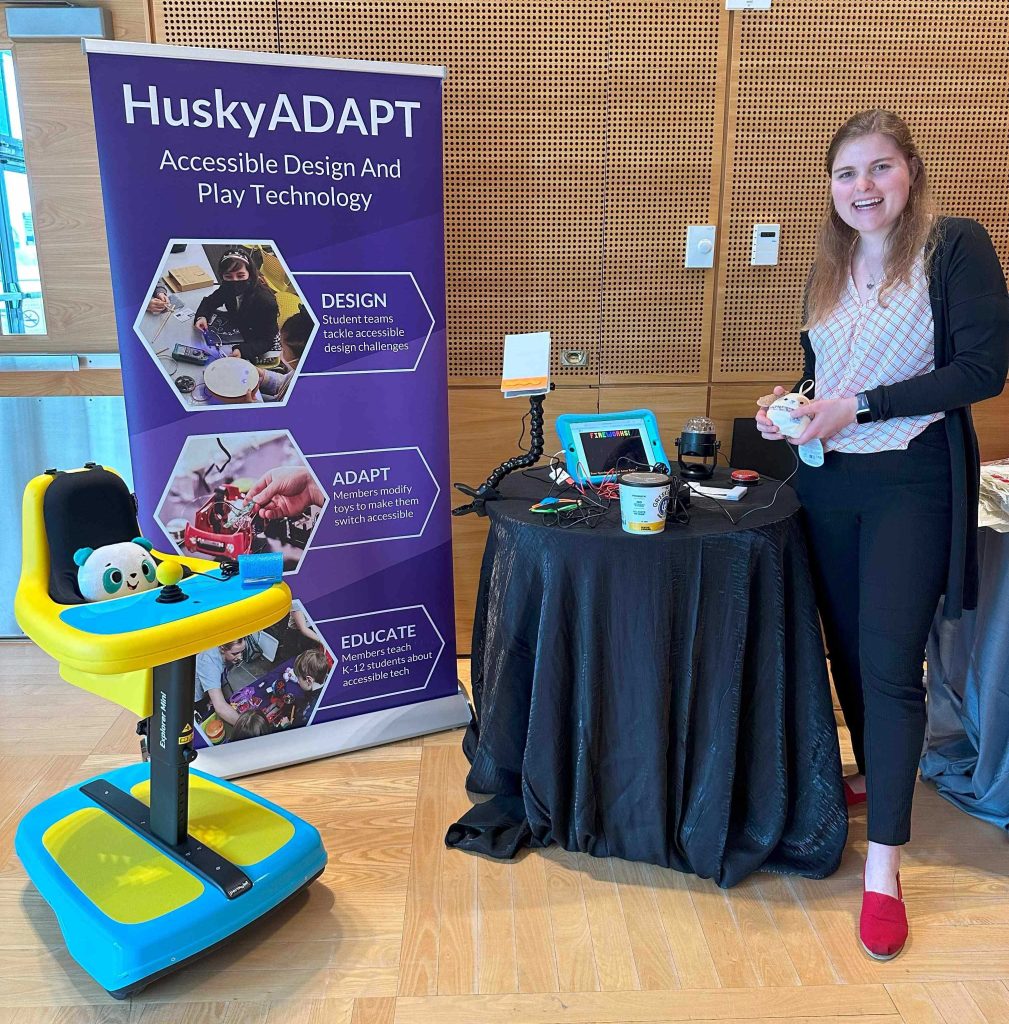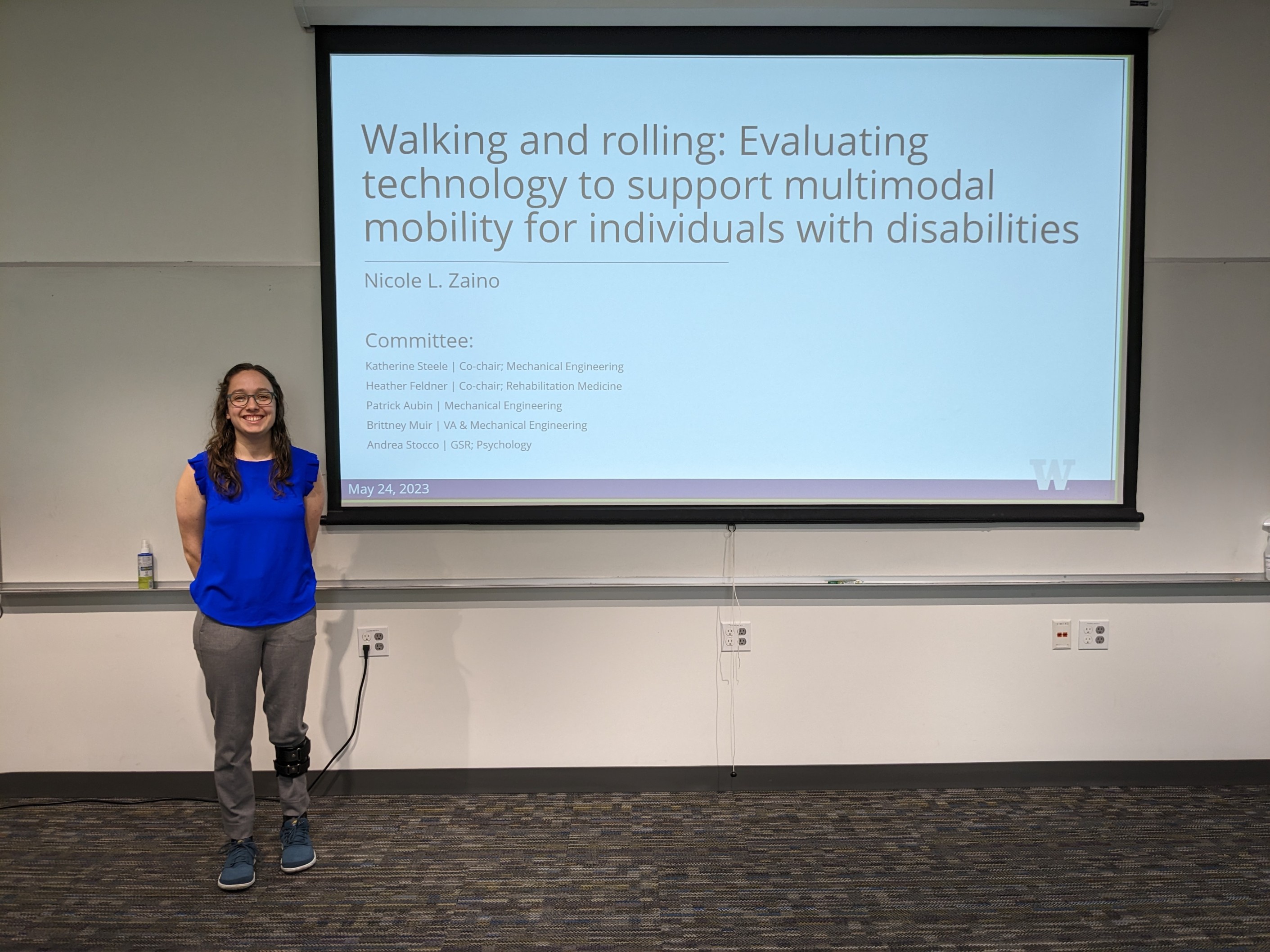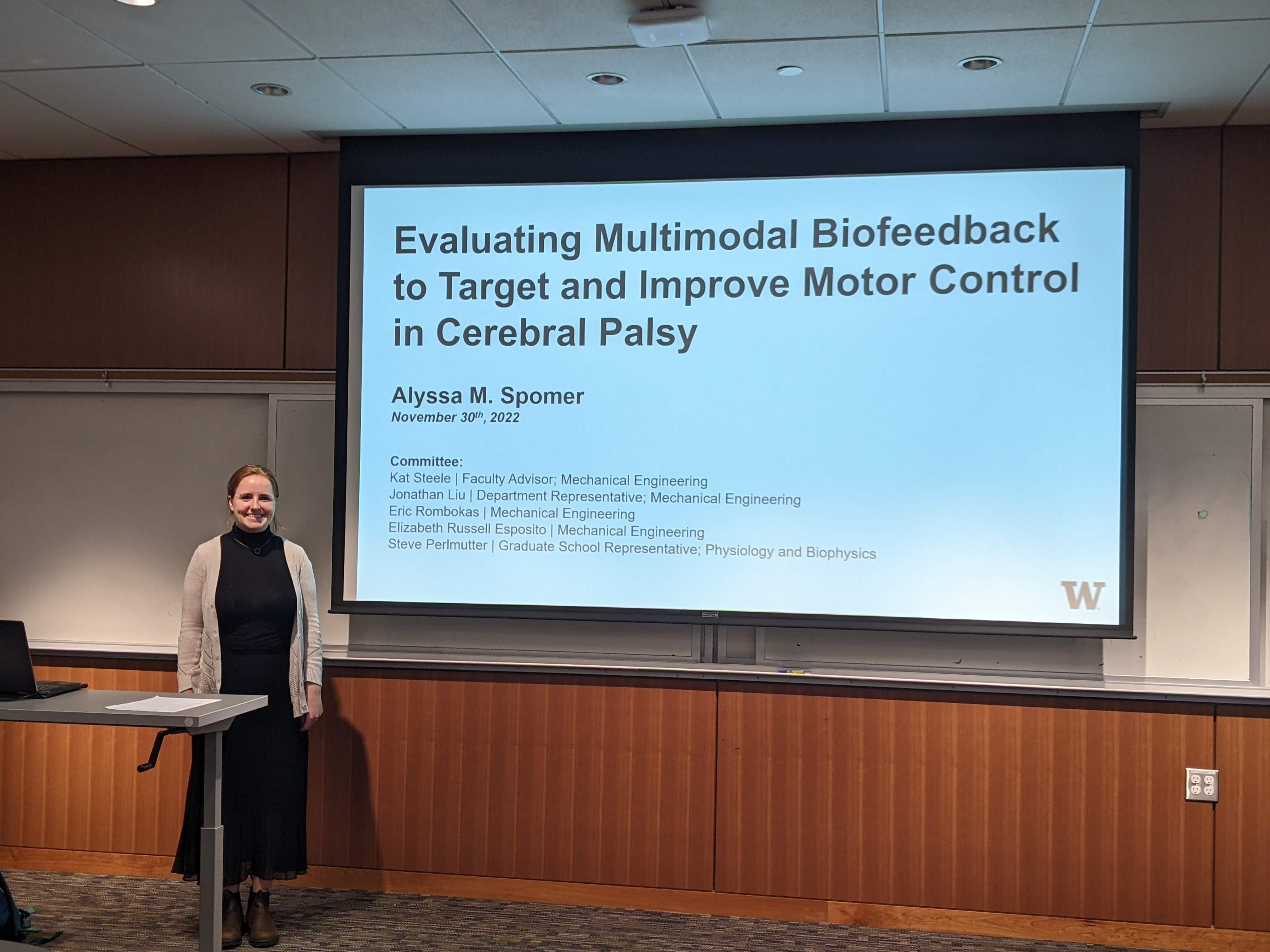The Center for Research and Education on Accessible Technology and Experiences (CREATE) hosted a Research Showcase and Community Day 2024 on May 20th. These events brought industry and community partners — leaders working and living in the disability and accessibility space — together with faculty and student researchers. Co-sponsored by HuskyADAPT. CREATE’s mission is to make technology accessible and to make the world accessible through technology.
Steele Lab members, Alexandra (Sasha), Mia, Kate, and Alisha, presented posters at the CREATE Research Showcase to highlight design, development & research of technology to support individuals with disabilities.
Mia, Kate, and Alisha presented a poster on “The Switch Kit: bridging the gap in therapeutic toys for children with medical complexities“. This research involved the creation and evaluation of a therapeutic toy named the “Switch Kit,” designed for young children with medical complexities. The kit allows family members and clinicians to customize switches tailored to the unique needs of each child.



Alexandra presented a poster on “Camera-Based Interface for Hand Function Assessment”. Currently, hand function assessment (e.g., joint range of motion) in a clinical setting is done with low-resolution tools and oftentimes in a subjective manner that is time-consuming. With a camera-based interface, we wanted to improve the speed of collecting information about patient’s hand function, improve repeatability and objectivity, and enhance result presentation for both patients and clinicians.



